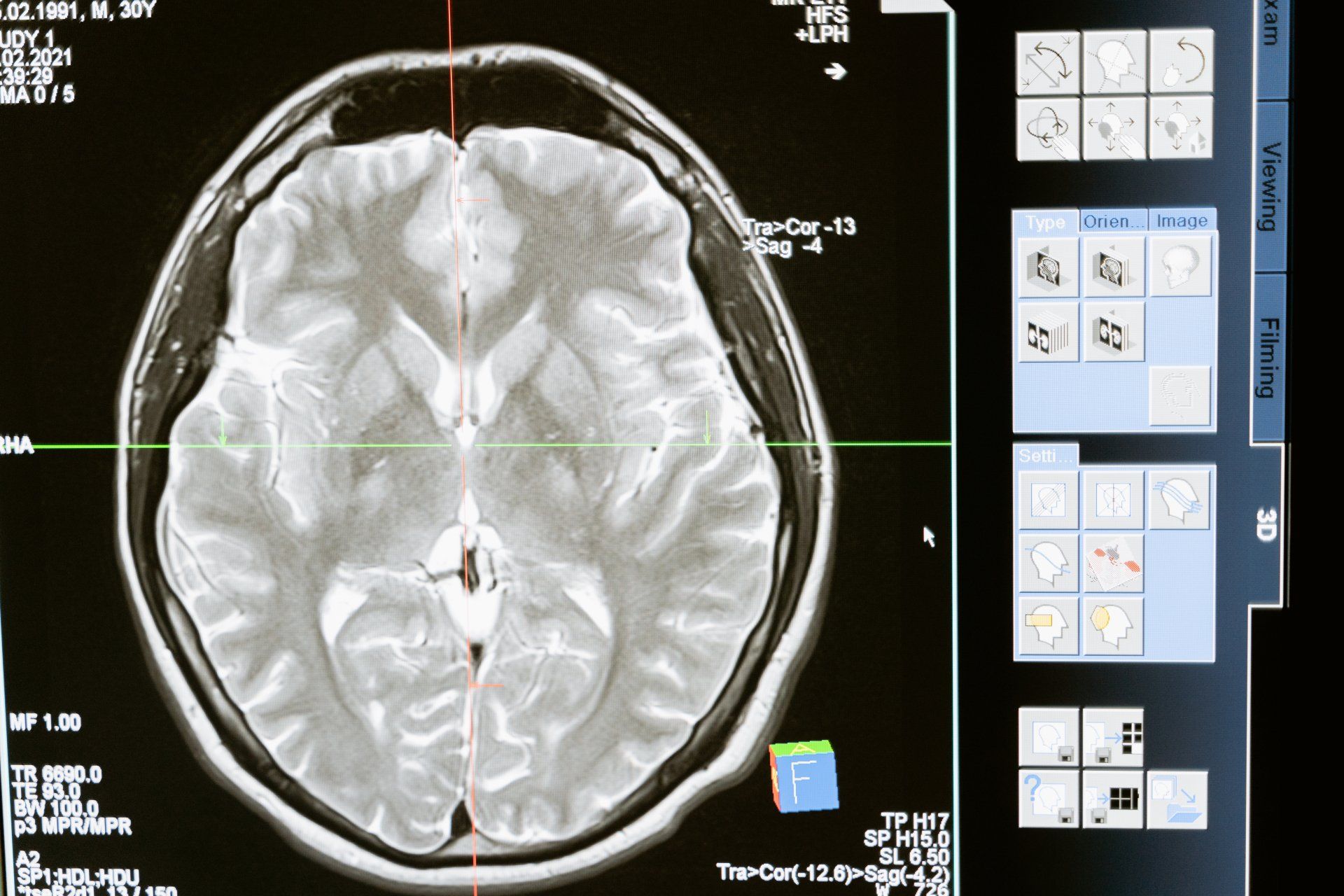Traumatic Brain Injury (TBI)
What Is a Traumatic Brain Injury? (TBI)

A traumatic brain injury (TBI) occurs when a sudden trauma causes damage to the brain. This type of injury can result from various accidents, including:
- Motor Vehicle Accidents: Collisions involving cars, motorcycles, bicycles, or pedestrians can cause TBIs, particularly if there's a direct impact to the head or rapid deceleration forces.
- Falls: Falls from heights, slipping, or tripping accidents can lead to head injuries, especially if the head strikes the ground or another object.
- Sports Injuries: Contact sports or activities with a risk of falls (like skiing or horseback riding) can result in TBIs due to impacts, collisions, or falls.
- Assaults: Physical assaults or violent attacks can cause traumatic brain injuries from blows to the head or intentional trauma.
Types and Severity of TBIs
- Concussion: A mild traumatic brain injury (TBI) often caused by a blow or jolt to the head, resulting in temporary loss of consciousness or confusion.
- Contusion: Bruising of brain tissue due to a direct impact.
- Diffuse Axonal Injury: Widespread damage to brain cells and nerve fibers from rapid acceleration or deceleration forces, common in severe TBIs.
- Penetrating Injury: Occurs when an object penetrates the skull and damages brain tissue.
Symptoms of TBI
- Mild TBI: Headache, confusion, dizziness, nausea, sensitivity to light or noise, memory problems, mood changes.
- Moderate to Severe TBI: Persistent headache, repeated vomiting or nausea, seizures, loss of consciousness, slurred speech, numbness or weakness in extremities, profound confusion or agitation.
If you are feeling any symptoms it is important to seek immediate medical attention
Treatment and Recovery
- Emergency Care: Immediate medical attention is crucial to stabilize the patient and prevent further injury.
- Diagnostic Tests: CT scans or MRI may be used to assess the extent of brain damage.
- Treatment Plan: Management depends on the severity of the injury. Mild TBIs may require rest and symptom management, while moderate to severe cases may involve surgery to relieve pressure or repair skull fractures.
- Rehabilitation: Physical, occupational, and speech therapy can help patients regain lost functions and cope with cognitive or physical impairments.
Long-Term Outlook
The outcome of a traumatic brain injury can vary widely depending on the severity and location of the injury, age of the patient, and promptness of medical care. Some individuals may experience lasting disabilities requiring long-term support, while others may recover fully with time and rehabilitation.
If you or someone you love has experienced a traumatic brain injury, it's important to seek medical attention immediately to assess the extent of the injury and begin appropriate treatment.
Lastly, contact the personal injury attorneys at WBRY Law! Our personal injury attorneys will help you navigate the claim process, deal with outstanding medical bills, and obtain compensation for the pain and suffering you deserve. Contact us today for a free case evaluation! 401-900-WBRY (9279).



